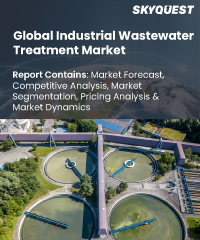
Report ID: SQMIG55D2003

Report ID:
SQMIG55D2003 |
Region:
Global |
Published Date: March, 2024
Pages:
182
|
Tables:
134 |
Figures:
77
Enhancing Water and Wastewater Treatment Capabilities in the Southeastern United States, Solenis and CedarChem formed a strategic collaboration in 2023. Acquisition supports a direct-to-market strategy by increasing customer value for sales and services related to water and wastewater treatment.
A strategic relationship was formed in October 2022 between Gross-Wen Technologies and Xylem Water Solutions Singapore. This partnership, which was announced on October 5, 2022, aims to advance algae-based wastewater treatment technologies in Singapore. The main goal is to improve the revolving algal biofilm (RAB®) technology developed by Gross-Wen Technologies, which is well-known for its environmentally friendly wastewater treatment capabilities, which include reduced carbon footprints and nutrient recovery. A small-scale RAB® system will be implemented at Xylem's Singapore facility as part of this initiative, which is a part of PUB's Carbon Zero Grand Challenge. This system may be adopted more widely in Singapore's National Water Agency, PUB, showcasing the industry's dedication to sustainable wastewater management and emission reduction.
Pentair plc successfully completed, subject to usual adjustments, the $1.6 billion purchase of Manitowoc Ice from Welbilt, Inc. in July 2022. One of the leading suppliers of commercial ice manufacturers is Manitowoc Ice. Pentair's Commercial Water Solutions business is strengthened by this calculated decision, which allows them to provide foodservice and hospitality clients across the globe with all-inclusive water management solutions. With more than a million commercial ice makers installed worldwide thanks to Manitowoc Ice's widespread global presence, Pentair solidifies its position in the industry and reaffirms its dedication to offering sustainable water solutions to a wider range of clients.
Our industry expert will work with you to provide you with customized data in a short amount of time.
REQUEST FREE CUSTOMIZATIONWant to customize this report? This report can be personalized according to your needs. Our analysts and industry experts will work directly with you to understand your requirements and provide you with customized data in a short amount of time. We offer $1000 worth of FREE customization at the time of purchase.

Report ID: SQMIG55D2003